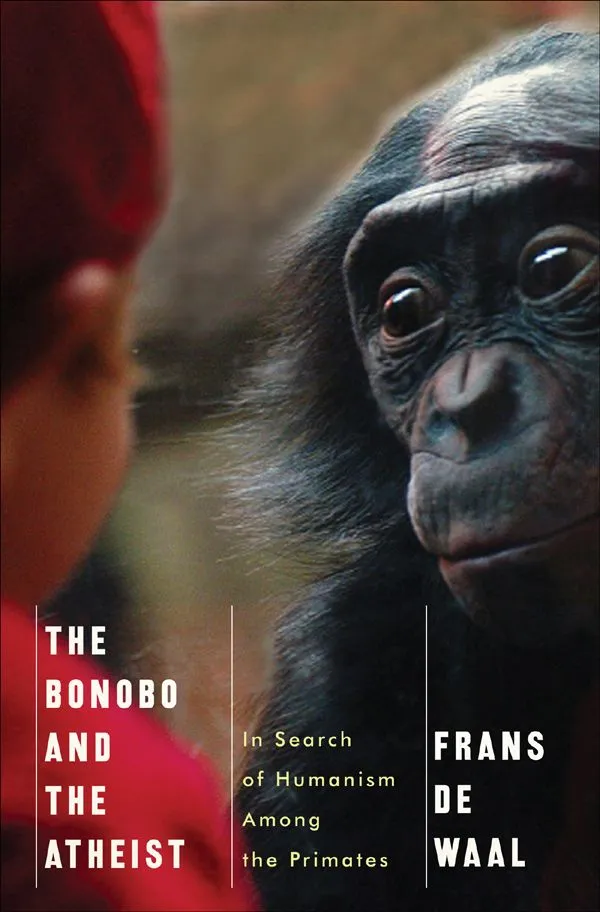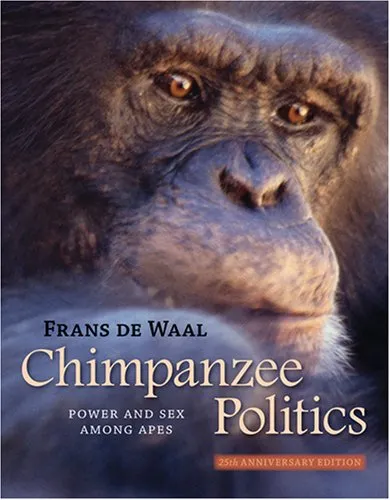The Bonobo and the Atheist: In Search of Humanism Among the Primates
4.7
Reviews from our users

You Can Ask your questions from this book's AI after Login
Each download or ask from book AI costs 2 points. To earn more free points, please visit the Points Guide Page and complete some valuable actions.Related Refrences:
Welcome to 'The Bonobo and the Atheist: In Search of Humanism Among the Primates,' a captivating exploration of the roots of human morality through the lens of primate behavior. Written by renowned primatologist Frans de Waal, this book delves deep into the intrinsic values that connect humanity and animal kin, shedding light on the nature of morality and its origins. By examining our closest primate relatives, the bonobos and chimpanzees, de Waal presents a compelling argument on how empathy, cooperation, and moral virtues evolved among primates and their implications for human society.
Detailed Summary of the Book
'The Bonobo and the Atheist' offers readers a unique perspective on the age-old debate about the foundation of human moral behavior. Frans de Waal begins by contrasting two of our closest relatives: the chimpanzees, known for their competitive and aggressive behavior, and bonobos, recognized for their nurturing and peaceful nature. Through this comparison, he reveals how bonobos exhibit levels of empathy, reciprocity, and cooperation akin to human moral behavior.
De Waal then explores the implications of these observations for understanding human morality. He challenges the notion that morality is solely a construct of human culture or religion, suggesting instead that moral behaviors have evolutionary roots. By presenting evidence from a wide array of primate studies, he argues that human morality has biological underpinnings shaped by natural selection and that these virtues can be seen in our primate counterparts.
The book also delves into the role of religion in moral development and societal cooperation. De Waal posits that while religion may fortify morality, it is not the origin. Instead, he suggests that morality emerged naturally in the course of evolution, as social bonds and group cohesion fostered survival. Through witty and insightful narratives, de Waal invites readers to reconsider their perceptions of ethics, religion, and what it means to be a moral being.
Key Takeaways
- Empathy and moral behaviors are not exclusive to humans; they are evident in other primates, particularly bonobos.
- Morality can be viewed as an evolutionary adaptation that promotes cooperation and social harmony.
- Religion may play a role in shaping moral norms but is not the origin of moral behavior.
- Understanding our primate relatives can provide valuable insights into human nature and ethics.
Famous Quotes from the Book
"Human morality is unthinkable without empathy."
"We have evolved to care about others as part of our basic nature."
"Religion may fill gaps in moral reasoning but does not itself beget morality."
Why This Book Matters
'The Bonobo and the Atheist' is pivotal in the ongoing conversation about the origins and nature of morality. By emphasizing the evolutionary roots of moral behavior, Frans de Waal challenges the traditional belief that morality is solely a human or divine construct. His insights compel us to look beyond cultural and religious paradigms to understand the instinctual facets of our ethical behavior. The book's comparative approach, showcasing the behaviors of bonobos and chimpanzees, furthers our understanding of humanity's place in the natural order.
This book is not only a significant contribution to science and philosophy but also to the wider cultural discourse on human behavior. It bridges the gap between understanding animals and understanding ourselves, encouraging a more profound respect for the natural world and our connection to it. By grounding morality in evolutionary science, de Waal provides a refreshing perspective on the forces that shape altruism and ethics in our societies.
Free Direct Download
You Can Download this book after Login
Accessing books through legal platforms and public libraries not only supports the rights of authors and publishers but also contributes to the sustainability of reading culture. Before downloading, please take a moment to consider these options.
Find this book on other platforms:
WorldCat helps you find books in libraries worldwide.
See ratings, reviews, and discussions on Goodreads.
Find and buy rare or used books on AbeBooks.
1269
بازدید4.7
امتیاز50
نظر98%
رضایتReviews:
4.7
Based on 0 users review
"کیفیت چاپ عالی بود، خیلی راضیام"
Questions & Answers
Ask questions about this book or help others by answering
No questions yet. Be the first to ask!



